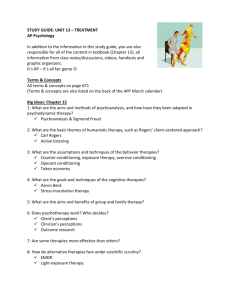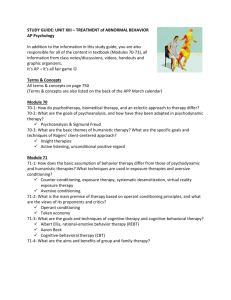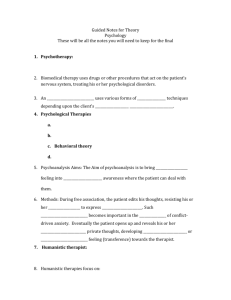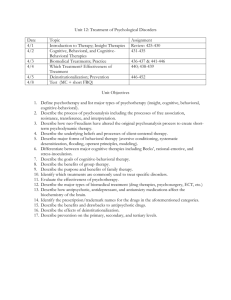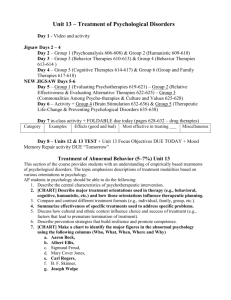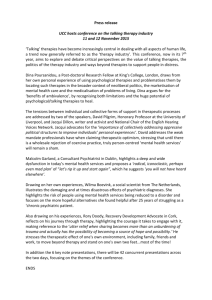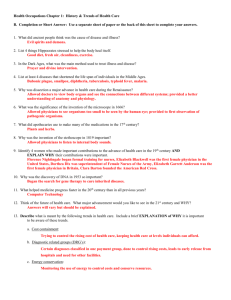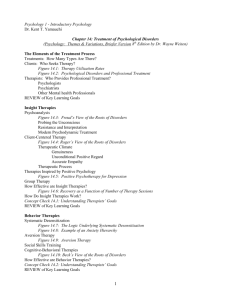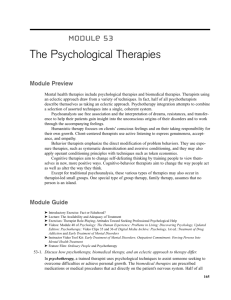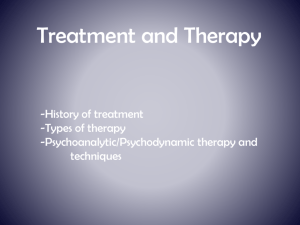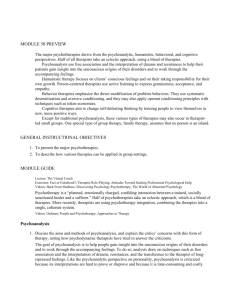AP Psychology Therapy Outline: Chapter 17
advertisement
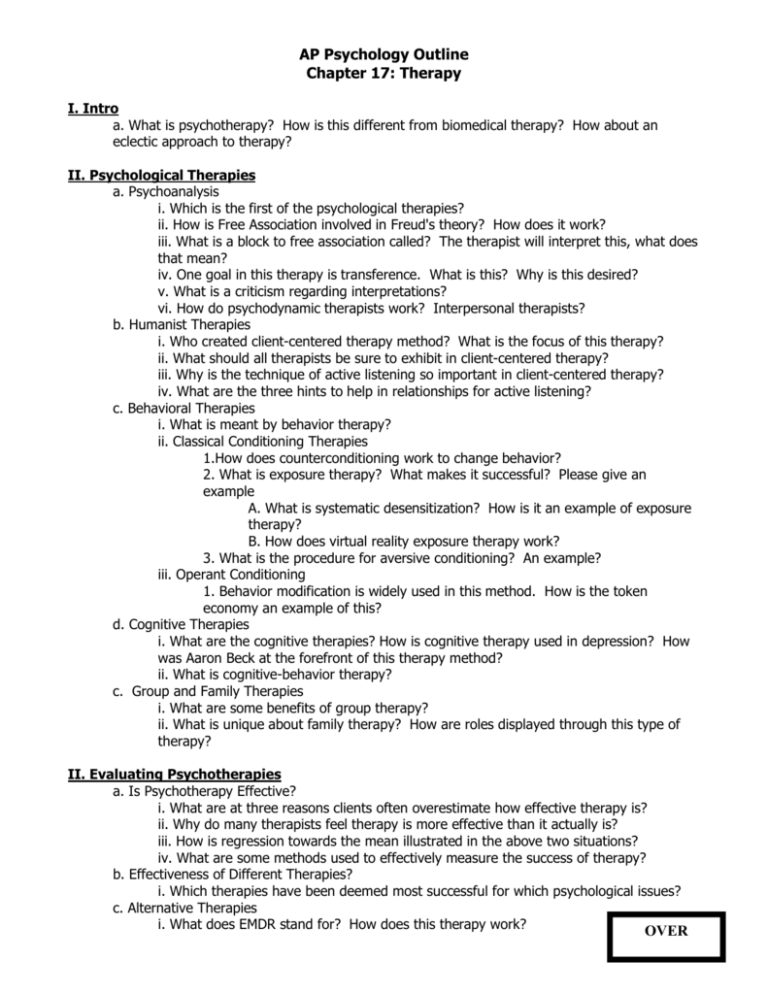
AP Psychology Outline Chapter 17: Therapy I. Intro a. What is psychotherapy? How is this different from biomedical therapy? How about an eclectic approach to therapy? II. Psychological Therapies a. Psychoanalysis i. Which is the first of the psychological therapies? ii. How is Free Association involved in Freud's theory? How does it work? iii. What is a block to free association called? The therapist will interpret this, what does that mean? iv. One goal in this therapy is transference. What is this? Why is this desired? v. What is a criticism regarding interpretations? vi. How do psychodynamic therapists work? Interpersonal therapists? b. Humanist Therapies i. Who created client-centered therapy method? What is the focus of this therapy? ii. What should all therapists be sure to exhibit in client-centered therapy? iii. Why is the technique of active listening so important in client-centered therapy? iv. What are the three hints to help in relationships for active listening? c. Behavioral Therapies i. What is meant by behavior therapy? ii. Classical Conditioning Therapies 1.How does counterconditioning work to change behavior? 2. What is exposure therapy? What makes it successful? Please give an example A. What is systematic desensitization? How is it an example of exposure therapy? B. How does virtual reality exposure therapy work? 3. What is the procedure for aversive conditioning? An example? iii. Operant Conditioning 1. Behavior modification is widely used in this method. How is the token economy an example of this? d. Cognitive Therapies i. What are the cognitive therapies? How is cognitive therapy used in depression? How was Aaron Beck at the forefront of this therapy method? ii. What is cognitive-behavior therapy? c. Group and Family Therapies i. What are some benefits of group therapy? ii. What is unique about family therapy? How are roles displayed through this type of therapy? II. Evaluating Psychotherapies a. Is Psychotherapy Effective? i. What are at three reasons clients often overestimate how effective therapy is? ii. Why do many therapists feel therapy is more effective than it actually is? iii. How is regression towards the mean illustrated in the above two situations? iv. What are some methods used to effectively measure the success of therapy? b. Effectiveness of Different Therapies? i. Which therapies have been deemed most successful for which psychological issues? c. Alternative Therapies i. What does EMDR stand for? How does this therapy work? OVER ii. How does Light Exposure Therapy work? What is it mostly used for? III. Biomedical Therapies a. Drug Therapy i What is meant by psychopharmacology? 1. What disorder are anti-psychotic drugs used for? How do they work? 2. How are anti-anxiety drugs successful? 3. How do anti-depressants work? Be sure to discuss the re-uptake process. 4. What are mood-stabilizing medications? How does lithium work? b. Brain Stimulation i. What is ECT? How does it work? Is it still used today? When/where? ii. What are some alternatives to ECT? c. Psychosurgery i. What is psychosurgery? ii. What is the best-known psychosurgical operation? Is it still used today? Why was it thought to be so good when it was created? IV. Preventing Psychological Disorders a. What are some methods of preventative mental health programs? Why are they thought to be so important?
